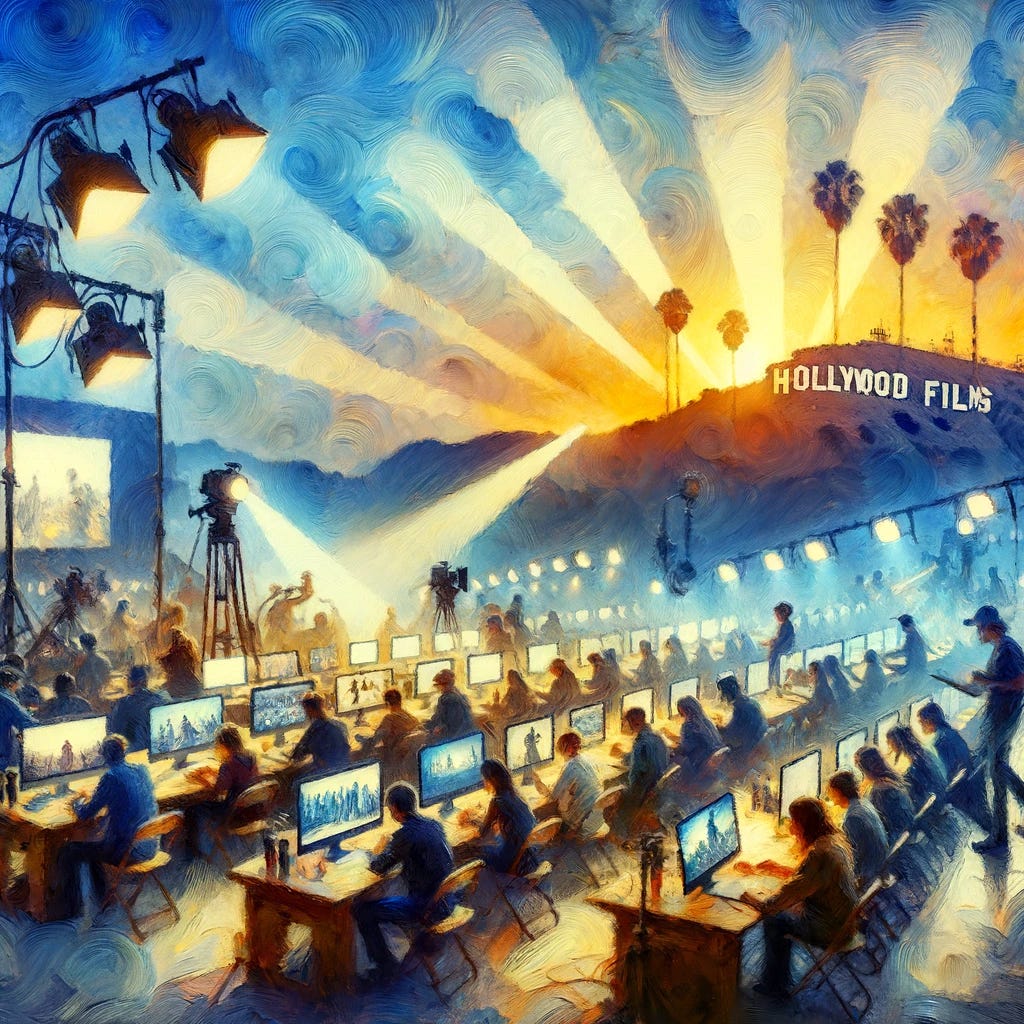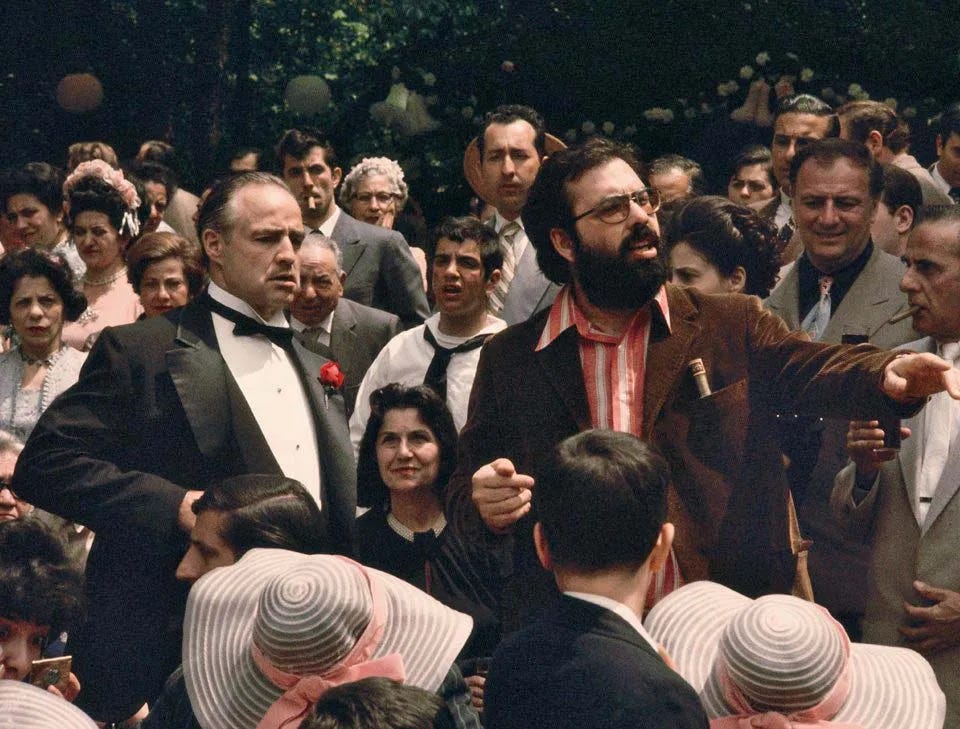In 1924, Hollywood was bustling with filmmakers crafting silent movies showcased in theaters. By 2024, movie-making has expanded beyond the studio lots to include productions crafted in the comfort of filmmakers' homes.
The evolution over a century is striking. From the primitive technology of silent films to the present, where feature films are shot on iPhones and beamed to a global audience, the transformation is profound.
Silent Movie Classics
Despite the limitations of silent cinema, these early films remain cinematic treasures. D.W. Griffith's "The Birth of a Nation," though marred by its racist content, and "Intolerance," famed for its narrative ambition and innovative editing techniques, stand out. Fritz Lang's "Metropolis" endures as a sci-fi landmark, its visuals and social commentary as resonant today as nearly a century ago.
German cinema of the era also left its mark with "The Cabinet of Dr. Caligari," lauded for its avant-garde visuals and psychological horror, and "Nosferatu," a pioneer in vampire lore.
Buster Keaton's "The General" revolutionized comedy with its daring action and physical humor, cementing its status as a classic.
These films, among others, showcase the rich legacy of silent cinema, each leaving an indelible impression on the history of filmmaking.
What ties them together is their mastery of storytelling. Whether silent or modern, the heart of any film lies in its narrative. Technology may evolve, and stars may come and go, but it's the story that truly captivates audiences.
This fundamental truth remains as relevant today as it did a century ago.
Talking Pictures
Following the silent movie era, the talkies surged forth as an even more influential creative medium, coinciding with the ascent of the Hollywood studio system. Their impact on American culture was immense, marking a significant evolution in cinematic storytelling. Initially, early talkies often mirrored filmed plays, but as technology advanced, a plethora of great storytellers emerged.
Despite the advent of television in the late 1940s, movies persisted in captivating audiences, adapting to changing preferences with the introduction of blockbusters and widescreen formats. Subsequent innovations such as cable TV with dedicated movie channels, the advent of the VCR, and the DVD further enriched the cinematic experience, granting viewers the ability to revisit their favorite films and bolstering studio profits.
Covid changed everything
However, the landscape shifted dramatically with the onset of the Covid-19 pandemic, which hindered theater attendance. Though cable and streaming services persisted, the disruption in the habit of attending cinemas irreversibly altered the Hollywood ecosystem.
Today, the decline in movie theater profits is evident, although the broader decline of movies is debatable. Factors such as the impact of COVID-19 on theater attendance and the multitude of entertainment options available on the internet contribute to this decline. Additionally, advancements in home entertainment technology, including larger screens and superior image quality, make staying at home a more attractive option. Coupled with the cost-effectiveness of home snacks, the allure of theaters diminishes further.
Movies no longer hold the cultural prominence they once did decades ago. When was the last time a movie captured widespread conversation or inspired memorable quotes? Numerous factors contribute to this shift. The internet era offers myriad distractions, diverting attention from traditional cinematic experiences. Moreover, movie studios, now often controlled by financial experts rather than creatives, prioritize profit over artistic risk-taking. The exponential growth in production and distribution costs, coupled with exorbitant star salaries, exacerbates studios' aversion to risk.
Independent Films Aren’t Formulaic
Despite this, there exists a wealth of talented independent filmmakers globally producing exceptional original films, albeit often overlooked. The Hollywood establishment claims to support such creators, but their actions speak otherwise. Rarely do they take the financial risk necessary to promote independent films to broader audiences. This lack of support contrasts sharply with the inundation of formulaic blockbuster sequels, implausible action spectacles, and uninspired remakes flooding theaters.
The impending demise of Hollywood seems increasingly likely, hastened by the emergence of AI-driven video formats. This revolutionary technology challenges the traditional studio model, empowering individuals to create personalized cinematic experiences. A wave of independent creators will ascend, marking a new era of innovation while signaling the overdue downfall of the Hollywood behemoth. Prepare for a seismic shift in the cinematic landscape.
Francis Coppola, renowned for crafting the cinematic masterpiece "The Godfather," stands as one of my favorite directors. Despite experiencing fluctuations in his career trajectory, Coppola has consistently delivered films deserving of our admiration.
At the pinnacle of his career, fueled by the successes of "The Godfather" and "Apocalypse Now," Francis Coppola contemplated the future of cinema, foreseeing a world where technological progress would democratize the art of filmmaking, opening its doors to anyone with a vision.
The Future of Filmmaking Has Arrived
Today marks the realization of that vision. The dawn of AI video is upon us. Witness the preview of LTX Studio presented by Matt Wolfe, whose YouTube channel serves as a premier hub for AI-related insights. The capabilities showcased by this software are truly astounding, signaling only the initial steps in this transformative journey.
The skeptics, as expected, are swift to criticize the technology, pointing out its rudimentary appearance and expressing concerns about the potential displacement of the multitude of technical professionals and actors who currently comprise the movie industry. Recently, one commentator lamented that when amateurs attempt to make movies, the results are generally lackluster. There's undoubtedly some truth in that assertion.
Story matters and always will
Yet, irrespective of how sophisticated and advanced the technology becomes, storytelling will remain paramount. While there are nearly nine hundred million videos on YouTube, only a handful are truly outstanding. How many offer compelling, unforgettable narratives? Precious few. Granted, it's plausible that AI will enhance its storytelling abilities. The stories and poems generated by ChatGPT are intriguing, and with the swift progress in AI technology, it's only a matter of time before truly memorable writing emerges. This will occur as AI exceeds human intelligence and reaches a point of convergence. With the advent of AI sentience, comes actual creativity.
Over the past few decades, technology has fueled creativity, transforming not only the music industry but also now the movie business. Change is inevitable in life, and it's accelerating. Within the next five years, the volume of films produced in Hollywood will likely dwindle.
Moreover, there's a growing inclination for active participation rather than passive consumption. This has led to the proliferation of synthesizers and home studios, enabling anyone to produce their recordings. However, once again, true masterpieces are rare, if they exist at all.
However, it seems that nobody truly cares. With the abundance of diversions and countless entities vying for our precious free time and attention in today's distracted civilization, the success or failure of a single technology appears inconsequential.
Not too long ago, prior to the advent of the MP3 file, audio quality held significance. Individuals would invest in high-fidelity systems and could discern the disparity between recordings made on a Wolensack tape recorder versus those from a professional studio. Yet, that era has passed. Why? Because convenience has taken precedence over quality.
Hopefully, the tradition of good storytelling will endure. Dating back to the ancient Greeks, it has withstood the test of time despite the ever-changing landscape of technology. But as the saying goes, one never knows, do one?






Nothing that is artificial can create anything. It can recombine existing elements and make something, but that is not creating anything. Humans can and do the latter, and they also can create new things. Charlie Parker took the elements that were available and recombined them into something new. AI can't think, so it can't do that.
...